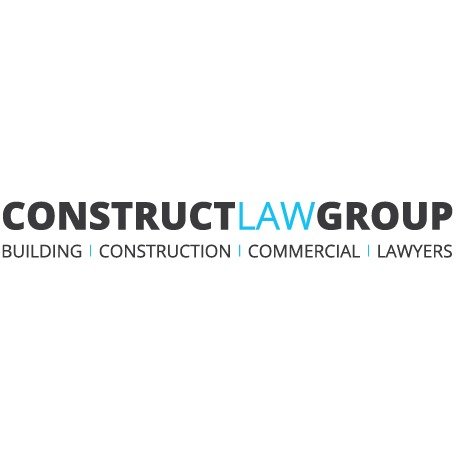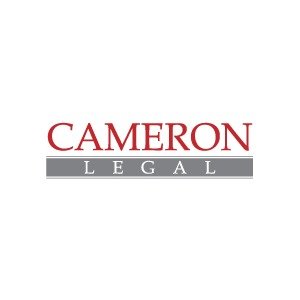Best Real Estate Lawyers in Australia
Share your needs with us, get contacted by law firms.
Free. Takes 2 min.
Free Guide to Hiring a Real Estate Lawyer
Or refine your search by selecting a city:
List of the best lawyers in Australia
Australia Real Estate Legal Questions answered by Lawyers
Browse our 2 legal questions about Real Estate in Australia and read the lawyer answers, or ask your own questions for free.
- Contract law
- Can the previous owner of a business be classed as neglected if he didn't do the maintenance on the referaction units before selling the business to me
-
- Cancel a property contract
- I have cancelled a property contract (after 3 years) and asked for the refund I am entitled to. How long after cancellation should the refund be paid?
-
Lawyer answer by RI & Associates
Could you let me know if the contract was for a property based in Pakistan? If it's in Pakistan, then I can advise on the course of action. Regards, Rana Ahmad
Read full answer
About Real Estate Law in Australia
Real Estate law in Australia governs the buying, selling, and leasing of property. The country has a vibrant property market, influenced by both local and international factors. Australian real estate law is characterized by its state-specific regulations, which means that legal requirements can vary significantly across different states and territories. Key areas include residential and commercial property transactions, leasing, mortgage arrangements, planning, land use, and property dispute resolution.
Why You May Need a Lawyer
Engaging a lawyer specializing in real estate can be crucial for navigating the complex legal landscape. Common situations where legal help may be necessary include:
- Buying or selling a property: Ensuring legal compliance and managing contracts.
- Leasing arrangements: Drafting and reviewing lease agreements.
- Property disputes: Resolving conflicts related to property boundaries, tenant rights, or breaches of contract.
- Development and construction: Obtaining necessary permits and negotiating contracts.
- Mortgage and financing issues: Understanding loan agreements and foreclosure proceedings.
Local Laws Overview
Real estate laws in Australia are predominantly dictated by state legislation, with some federal oversight. Key legislative instruments include:
- Conveyancing: Each state has its own conveyancing act that regulates property transfer processes, rights, and obligations.
- Residential Tenancies Acts: These govern rental agreements and tenants' rights across different states.
- Strata Titles: Governing multi-unit developments, these regulations ensure unit owners' rights and responsibilities.
- Environmental and Planning Laws: State planning laws regulate land use, development approvals, and environmental impact assessments.
Frequently Asked Questions
What should I consider when buying a property in Australia?
When buying property, consider legal checks, financing, property value assessments, and compliance with local zoning laws.
Do I need a lawyer for selling my property?
Yes, a lawyer can ensure all contracts are legally sound, manage negotiations, and ensure compliance with real estate laws and regulations.
What is conveyancing?
Conveyancing is the legal process of transferring ownership of property from one party to another, involving checking title deeds, preparing contracts, and arranging settlements.
How do I resolve a boundary dispute?
Resolution may involve legal advice on property titles, negotiation, mediation, or, if necessary, litigation in the appropriate court.
What rights do tenants have in Australia?
Tenant rights include right to a secure rental agreement, protection from unfair eviction, and dwelling maintenance. Rights can vary by state.
What is the role of a property manager?
A property manager oversees rental property operations, including leasing, maintenance, tenant communication, and sometimes legal compliance.
How can I check property ownership in Australia?
Ownership details are public records accessible through state land registries, requiring a title search for specific properties.
Are electronic conveyancing processes available?
Yes, Australia has adopted electronic conveyancing, also known as eConveyancing, which streamlines the transfer process through platforms like PEXA.
What are the tax implications of buying property in Australia?
These can include stamp duty, land tax, and capital gains tax, which vary depending on property use and investor residency.
Can foreigners purchase property in Australia?
Yes, but non-residents may need Foreign Investment Review Board (FIRB) approval and are subject to additional regulations.
Additional Resources
For further assistance, consider these resources:
- Australian Government's legal aid and real estate agencies.
- State-specific Land Registry offices for property records and titles.
- The Real Estate Institute of Australia (REIA) for industry standards.
- The Foreign Investment Review Board (FIRB) for information on foreign investment regulations.
Next Steps
If you require legal assistance in real estate, consider the following steps:
- Consult a real estate lawyer to discuss your specific circumstances and obtain tailored advice.
- Research lawyers with relevant experience in your jurisdiction and check their qualifications and client reviews.
- Gather any documents and information relevant to your legal matter before consultations.
- Contact local legal aid services if you require free or reduced-fee legal assistance based on your financial situation.
Disclaimer:
The information provided on this page is for general informational purposes only and does not constitute legal advice. While we strive to ensure the accuracy and relevance of the content, legal information may change over time, and interpretations of the law can vary. You should always consult with a qualified legal professional for advice specific to your situation.
We disclaim all liability for actions taken or not taken based on the content of this page. If you believe any information is incorrect or outdated, please contact us, and we will review and update it where appropriate.
Browse real estate law firms by service in Australia
Australia Attorneys in related practice areas.
Browse real estate law firms by city in Australia
Refine your search by selecting a city.
















